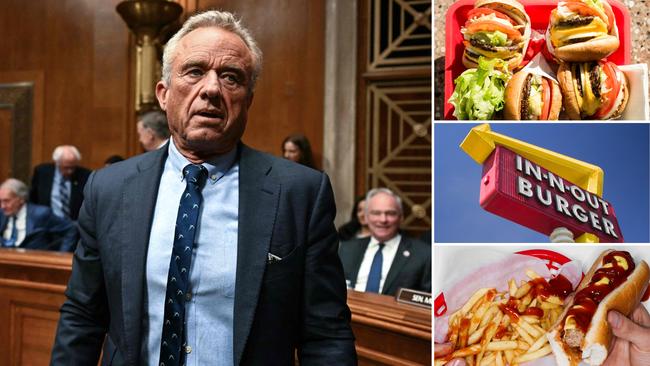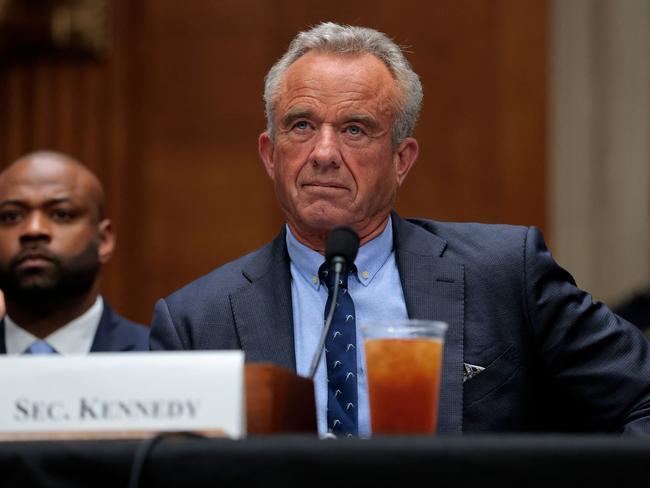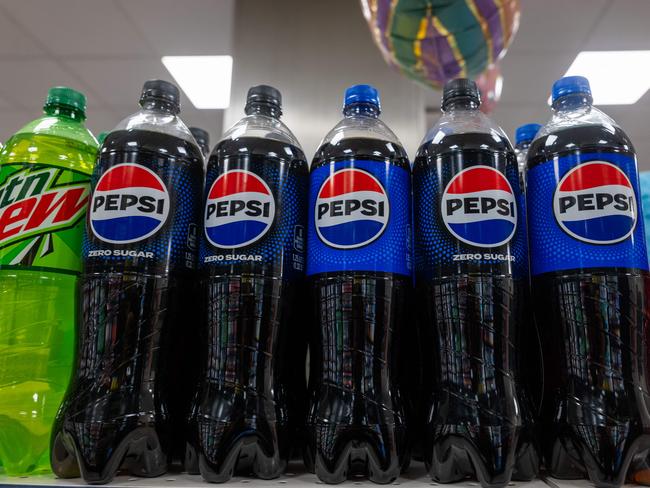Americans have an appetite for taking on Big Food producers
There is no more non-partisan issue than safeguarding what people are eating and how it affects their health.

In the United States, a bipartisan backlash against Big Food is gathering pace. Health Secretary Robert Kennedy Jr has become a vocal critic of the ultra-processed food that he believes is “poisoning” Americans and which makes up about 70 per cent of branded food products available in US grocery stores.
Last year more than a dozen states introduced legislation trying to address harmful chemicals in food. Efforts to regulate unhealthy UPFs have been hindered as the US Food and Drug Administration has not come up with a UPF definition.
The regulator has acknowledged a “clear association between UPF and poor health outcomes”. It has said that foods deemed ultra-processed are usually industrially engineered and include additives such as flavours and colours, and nutrients intended to make them appetising, including saturated fat, sodium and added sugars. However, at a Senate health committee hearing in December on what the FDA is doing to reduce America’s diabetes and obesity epidemics and take on the food industry, the regulator said: “It is important that we better understand why and how UPF may be negatively impacting health to ... avoid overly broad and impractical messages for consumers.”

US food groups should be more worried in the short term about bipartisan efforts at state level to “Make America Healthy Again”. In California, a bill introduced by a Democratic representative, Jesse Gabriel, would create America’s first statutory UPF definition and then direct California’s environmental health regulator to identify a subcategory of “particularly harmful” UPFs that should be phased out of school meals by 2032.
Lawyers at Jones Day have said that if California establishes a statutory definition for UPFs, it could “have ripple effects nationwide”.
Meanwhile, in Pennsylvania, Natalie Mihalek, a Republican state representative, has introduced a package of anti-Big Food laws, including banning unhealthy, ultra-processed foods from being sold in schools. Personal injury lawyers have spotted an opportunity. In a groundbreaking lawsuit filed in December, Morgan & Morgan, the Florida-based law firm, accused 11 US food groups, including Kraft Heinz, Mondelez, PepsiCo and WK Kellogg, of engineering ultra-processed foods to make them highly addictive and using tobacco company-style sales tactics that have seen UPFs displace traditional foods.
In the lawsuit, the plaintiff Bryce Martinez, 18, from Pennsylvania, alleges the actions of US food companies caused him to develop Type 2 diabetes and non-alcoholic fatty liver disease by the age of 16.

Hilliard Law, a Texas firm, says it has been contacted by hundreds of people after calling for plaintiffs who believe they or their children have suffered from health problems that their doctor “has linked directly to the consumption of ultra-processed foods”. The Consumer Brands Association, which represents packaged food companies in the US, has argued that they “adhere to the rigorous evidence-based safety standards established by the FDA to deliver safe, affordable and convenient products that consumers depend on every day”. They have launched a website to tackle “confusion or misconceptions around processed food”.
Big Food lobbyists are finding fewer friends among legislators, however. Melanie Benesh, vice-president of government affairs at the Environmental Working Group, a Washington-based non-profit, said: “I think there is no issue right now that is less partisan than our food.”
However, she said that so far, the Trump administration had not taken any meaningful action against unhealthy food, but had fired thousands of food and health workers and reversed a Biden-era proposal that aimed to reduce salmonella in raw poultry products.
It remains unclear whether the Trump administration would enforce measures to reduce the consumption of unhealthy UPFs. A “Make America Healthy Again” commission, led by Kennedy, is due to make policy recommendations to the president over the summer. However, state legislators aren’t waiting to go into battle with big food producers on their own.
The Times




To join the conversation, please log in. Don't have an account? Register
Join the conversation, you are commenting as Logout